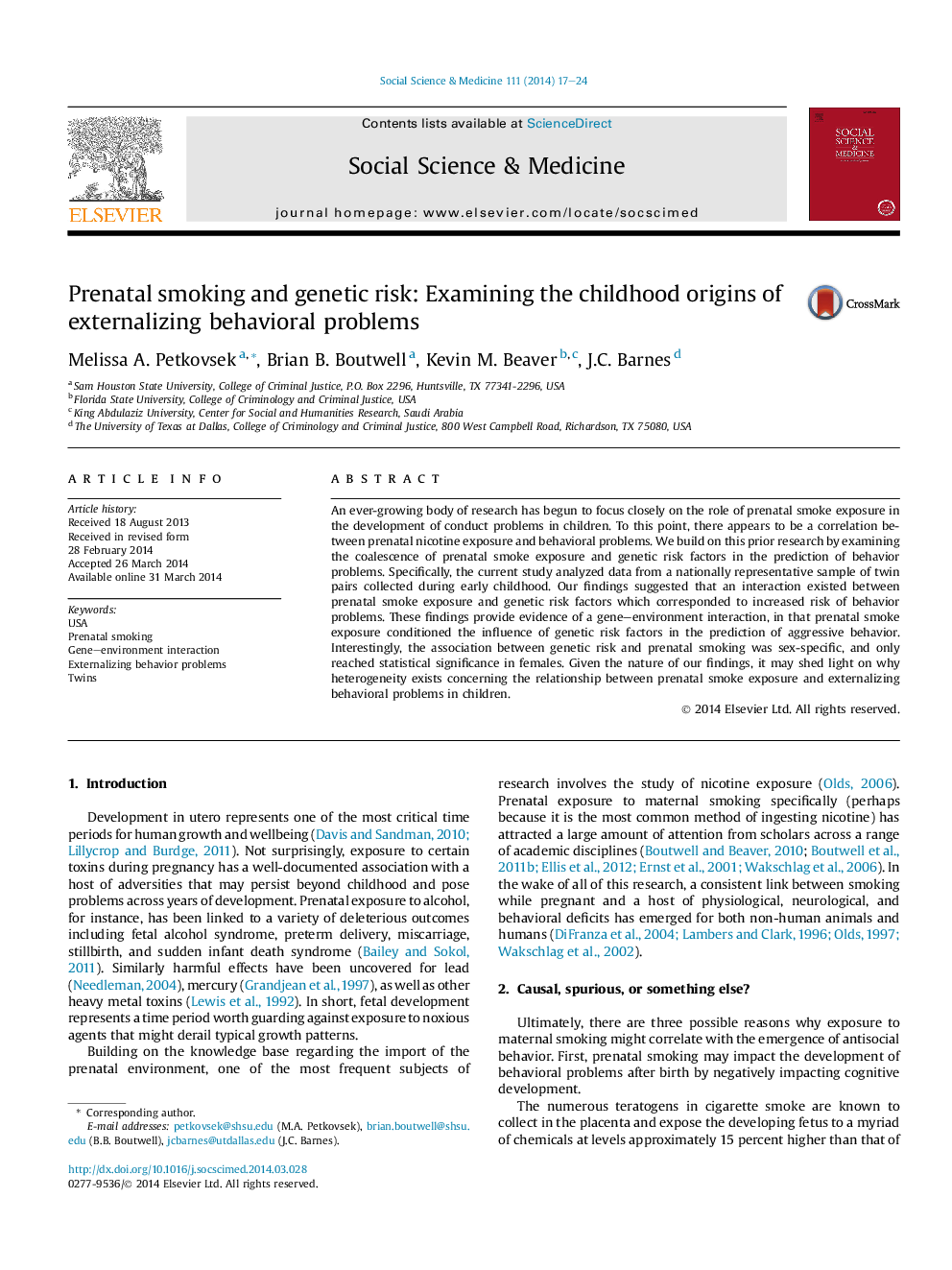| Article ID | Journal | Published Year | Pages | File Type |
|---|---|---|---|---|
| 7334959 | Social Science & Medicine | 2014 | 8 Pages |
Abstract
An ever-growing body of research has begun to focus closely on the role of prenatal smoke exposure in the development of conduct problems in children. To this point, there appears to be a correlation between prenatal nicotine exposure and behavioral problems. We build on this prior research by examining the coalescence of prenatal smoke exposure and genetic risk factors in the prediction of behavior problems. Specifically, the current study analyzed data from a nationally representative sample of twin pairs collected during early childhood. Our findings suggested that an interaction existed between prenatal smoke exposure and genetic risk factors which corresponded to increased risk of behavior problems. These findings provide evidence of a gene-environment interaction, in that prenatal smoke exposure conditioned the influence of genetic risk factors in the prediction of aggressive behavior. Interestingly, the association between genetic risk and prenatal smoking was sex-specific, and only reached statistical significance in females. Given the nature of our findings, it may shed light on why heterogeneity exists concerning the relationship between prenatal smoke exposure and externalizing behavioral problems in children.
Related Topics
Health Sciences
Medicine and Dentistry
Public Health and Health Policy
Authors
Melissa A. Petkovsek, Brian B. Boutwell, Kevin M. Beaver, J.C. Barnes,
